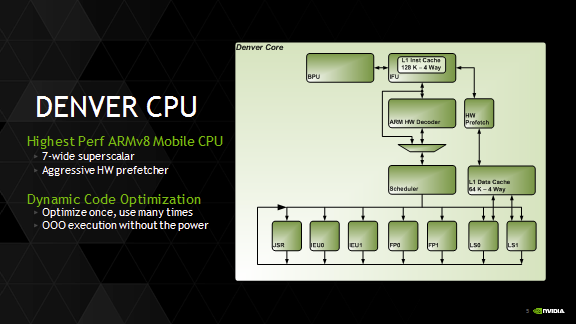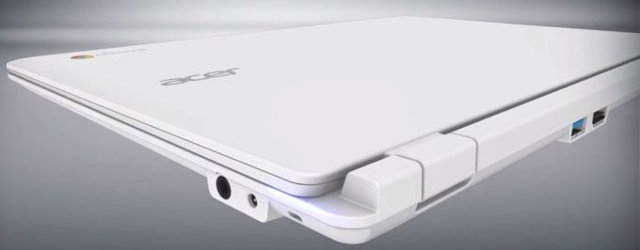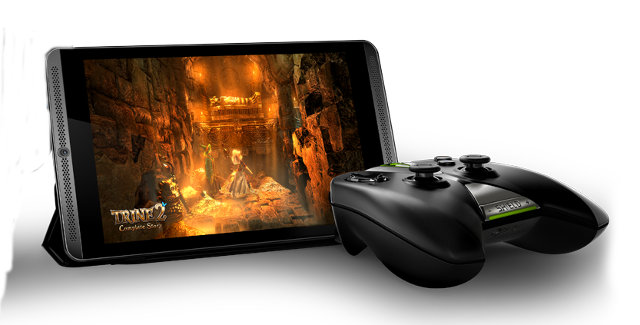Avionic Design, a German company specializing in the development and production of electronic components for the embedded, avionics, and healthcare market, has been working on an Nvidia Tegra K1 system-on-module (SoM) , using the quad core version of the processor, with 2GB RAM, and 16GB eMMC, putting most features found in Jetson TK1 development board into a 70×50 mm module. Nvidia Tegra K1 CPU module specifications: SoC – Nvidia Tegra K1 quad core Cortex A15 processor up to 2.2 GHz with Nvidia Kepler GPU with 192 cores up to 450 MHz System Memory – 2 GB DDR3 (1833 MHz) Storage – 16GB eMMC + SATA & SD/MMC via SoM connectors Interfaces: Video In – 2x 4-lane CSI Video Out – HDMI 1.4b, eDP, two 4-lane DSI Audio – 2x I2S, S/PDIF In and Out High Speed I/O PCIe 2.0 1x, PCIe 2.0 4x 2x USB 3.0, 2x USB 2.0 host, […]
Google Unveils Android 5.0 Lollipop, Nexus 6 Smartphone, Nexus 9 Tablet, and Nexus Player
Android L is now formally known as Android Lollipop. Since Google already released Android L preview a few month ago, we already know what’s new in Android 5.0 Lollipop with key changes including material design user interface, ART replacing Dalvik, better battery management, 64-bit support, etc… Google also announced three hardware platforms running Android 5.0: Nexus 6 Smartphone, Nexus 9 Tablet, and Nexus Player (Android TV) Motorola Nexus 6 Smartphone Hardware specifications: SoC – Qualcomm Snapdragon 805 quad core Krait 450 processor @ 2.7 GHz with Adreno 420 GPU System Memory – 3GB RAM Storage – 32 or 64 GB eMMC – No micro SD slot Display – 5.96” 1440×2560 AMOLED display (493 ppi). 16:9 Aspect ratio. Connectivity – 802.11 ac 2×2 (MIMO), Bluetooth 4.1, NFC Cellular Network (nano SIM): North America: GSM – 850/900/1800/1900MHz CDMA Band Class – 0/1/10 WCDMA Bands – 1/2/4/5/8 LTE Bands – 2/3/4/5/7/12/13/17/25/26/29/41 CA DL Bands […]
Linux 3.17 Released
Linus Torvalds announced the release of Linux Kernel 3.17 on Sunday: So the past week was fairly calm, and so I have no qualms about releasing 3.17 on the normal schedule (as opposed to the optimistic “maybe I can release it one week early” schedule that was not to be). However, I now have travel coming up – something I hoped to avoid when I was hoping for releasing early. Which means that while 3.17 is out, I’m not going to be merging stuff very actively next week, and the week after that is LinuxCon EU… What that means is that depending on how you want to see it, the 3.18 merge window will either be three weeks, or alternatively just have a rather slow start. I don’t mind getting pull requests starting now (in fact, I have a couple already pending in my inbox), but I likely won’t start processing […]
More Technical Details & Benchmarks about Nvidia Tegra K1 “Denver” 64-bit ARM SoC
The 32-bit version of Nvidia Tegra K1 have generally received good reviews in terms of performance, especially GPU performance, and the company has also provided good developer’s documentation and Linux support, including open source drivers for the Kepler GPU (GK20A) found in the SoC. But as initially announced, Tegra K1 with also get a 64-bit ARM version codenamed “Denver”, and Nvidia provided more details at Hotchips conference. The 64-bit Tegra K1 will still feature a 192-core Kepler GPU, but replace the four ARM Cortex A15 cores found in the 32-bit version, by two ARMv8 “Project Denver” cores custom-designed by Nvidia. The multi-core performance of the dual core 64-bit Tegra K1 @ 2.5 GHz may end up being equivalent to the quad core 32-bit Tegra K1 @ 2.1 GHz, but the single core performance will be much better thanks to a a 7-way superscalar microarchitecture (vs 3-way for Cortex A15), as […]
Acer CB5 Chromebook To Feature Nvidia Tegra K1 Processor, 13 Hours of Battery Life
It seems Nvidia Tegra K1 is getting in more hardware than its predessors. It can not only be found in Jetson TK1 development board and Shield tablet developed by the company, but also products such as Xiaomi MiPad, as well as Google Tango Project Tablet devkit. Acer CB5 Chromebook should also launch very soon with Tegra K1 quad core processor, a 13.3″ display, and the company claims it should last 13 hours based on Google’s power_loadtest. Preliminary specs for Acer CB5 Chromebook: SoC- Nvidia Tegra K1 quad core Cortex A15 @ 2.1 GHz with Kepler GPU System Memory – 2 to 4 GB DDR3 Storage – 16 / 32 GB flash Display – 13.3″ display with 1366×768 or 1920×1080 resolution (TBC) depending on model, and optional touchscreen support Video Output – HDMI Audio – 3.5mm audio jack, speakers Connectivity – 802.11 b/g/n/ac Wi-Fi USB – 2x USB 3.0 ports, 1x […]
Linux 3.16 Released
Linus Torvalds announced the release of Linux Kernel 3.16 over the week-end: So nothing particularly exciting happened this week, and 3.16 is out there. And as usual (previous release being the exception) that means that the merge window for 3.17 is obviously open. And for the third time in a row, the timing sucks for me, as I have travel coming up the second week of the merge window. Many other core developers will be traveling too, since it’s just before the kernel summit in Chicago. So we’ll see how the next merge window goes, but I’m not going to worry about it overmuch. If I end up not having time to do all the merges, I might delay things into the week of the kernel summit, but I’ll hope to get most of the big merging done this upcoming week before any travel takes place, so maybe it won’t come […]
Some Projects on Nvidia Jetson TK1 Development Board: Nintendo Emulator, USB3 Webcam, and Robotics
Nvidia Jetson TK1 is a development board powered by the company’s Tegra K1 quado core Cortex A15 processor, and especially a Kepler GPU that allows for OpenGL 4.4. It has shipped to developers around April/May, and some of them have showcased their projects, or tested some hardware. Dolphin Emulator on Nvidia Jetson TK1 Dolphin is an emulator for Nintendo GameCube and Wii console that supports full HD (1080p) rendering, and run on Android, Linux and Mac OS, and there’s also an Alpha version for Android. Ryan Houdek (Sonicadvance1), one of Dolphin’s developers, has leveraged Kepler’s OpenGL support via Nvidia’s GPU drivers, to port the emulator to the platform running on Ubuntu, but it should work as well on Tegra K1 hardware running Android such as XiaoMi MiiPad tablet. You can watch Mario Kart: Double Dash demo running at full speed on the Nvidia board below. According to the developer, such […]
Nvidia Announces Tegra K1 based Shield Tablet with Game Controller and Stylus
After the Shield game console, Nvidia has now announced the Shield Tablet powered by Nvidia Tegra K1 quad core processor, and specifically designed for gamer with a kickstand to adjust the inclination of the 8″ display, and a Wi-Fi Direct game controller with low latency, including a built-in stereo headphone jack and microphone. Shield tablet specifications: SoC – NVIDIA Tegra K1 quad core Cortex A15 @ 2.2 GHz processor with a 192 core Kepler GPU System Memory – 2GB RAM Storage – 32 GB (WiFi+4G LTE) or 16 GB (WiFi-only), and micro SD slot Display – 8″ multi-touch display; 1920×1200 resolution Video Output – 1x mini HDMI output Audio I/O – Front facing stereo speakers, dual bass reflex port with built-in microphone, 3.5 mm stereo headphone jack with microphone support Connectivity – Wireless 802.11n 2×2 Mimo 2.4 GHz and 5 GHz Wi-Fi, Bluetooth 4.0 LE and GPS / GLONASS Cellular […]








